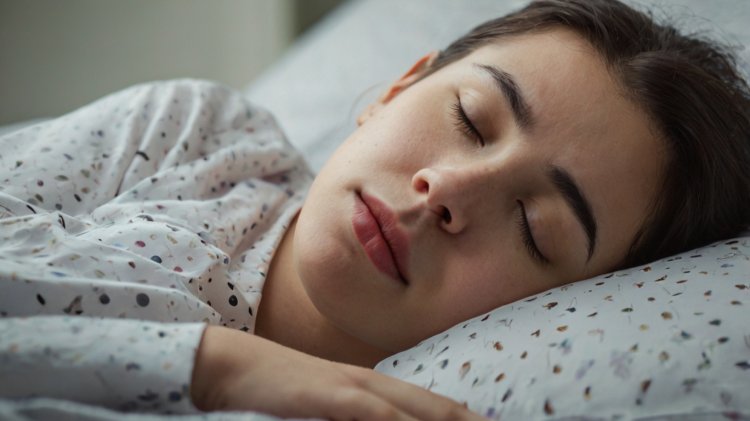The Close Relationship Between Sleep and Mental Health
Sleep is often referred to as “nature’s soft nurse,” a phrase coined by Shakespeare that remains relevant today. This poetic description underscores the vital role sleep plays in our physical and mental well-being. Modern science has revealed that insufficient sleep not only affects physical health but also has profound implications for mental health.
Understanding the intricate relationship between sleep and mental health is essential for improving emotional resilience, cognitive function, and overall quality of life.
Why Sleep Is Vital for Mental Health
Sleep is far more than a period of rest. During sleep, the body repairs itself, consolidates memories, and regulates emotions. When sleep quality is compromised, these processes are disrupted, increasing the risk of mental health disorders like anxiety and depression.
Key Roles of Sleep in Mental Health:
- Emotional Regulation: Lack of sleep impairs the brain's ability to manage emotions effectively, leading to heightened irritability and stress.
- Cognitive Performance: Sleep is critical for attention, memory, and decision-making. Sleep deprivation hampers these cognitive skills, making daily challenges harder to manage.
- Perception and Reality: Prolonged sleep deprivation can lead to hallucinations and distorted perceptions of reality.
The Two-Way Connection Between Sleep and Mental Health
Sleep and mental health have a bidirectional relationship. Poor sleep increases the risk of developing mental health conditions, while these conditions often exacerbate sleep problems.
Evidence Supporting the Connection:
- Insomnia and Depression: Studies reveal that insomnia quadruples the risk of developing depression.
- Anxiety Disorders: Anxiety often leads to racing thoughts and difficulty falling asleep, which worsens the condition.
- Psychotic Disorders: Research links early sleep problems in childhood to a higher likelihood of psychosis or borderline personality disorder in adolescence.
This two-way link creates a vicious cycle: mental health conditions disrupt sleep, and poor sleep aggravates these conditions.
How Poor Sleep Impacts Emotional Well-Being
Short-Term Effects:
- Increased stress and irritability.
- Reduced ability to process positive emotions.
Long-Term Consequences:
- Heightened risk of anxiety, depression, and bipolar disorder.
- Increased likelihood of suicidal ideation and behaviors.
Biological Mechanisms Behind the Connection
Several biological processes explain how sleep and mental health influence each other:
1. Emotional Dysregulation:
Sleep deprivation leads to overactivity in the amygdala (the brain's emotion center), amplifying negative emotional reactions.
2. Circadian Clock Disruption:
Genes regulating the sleep-wake cycle have been linked to psychiatric conditions like bipolar disorder and schizophrenia.
3. REM Sleep Dysfunctions:
REM sleep plays a critical role in processing emotional memories. Dysfunctional REM sleep in individuals with depression or PTSD may prevent proper emotional regulation, leading to recurring negative thoughts or nightmares.
Effective Strategies to Improve Sleep Quality
Addressing sleep issues is crucial for breaking the cycle of poor sleep and declining mental health. Cognitive Behavioral Therapy for Insomnia (CBT-I) is a gold-standard treatment that combines education, behavioral strategies, and cognitive techniques to improve sleep patterns.
CBT-I Techniques:
- Sleep Restriction: Match time in bed with actual sleep duration to improve sleep efficiency.
- Stimulus Control: Use the bed only for sleeping and avoid staying in bed if awake for more than 15–20 minutes.
- Relaxation Exercises: Techniques like progressive muscle relaxation and breathing exercises promote relaxation.
- Cognitive Restructuring: Challenge unrealistic expectations about sleep to reduce anxiety.
Sleep Hygiene Tips
Improving sleep hygiene involves adopting habits and behaviors that promote better sleep quality.
1. Create a Sleep-Friendly Environment:
- Keep your bedroom cool, dark, and quiet.
- Invest in a comfortable mattress and pillows.
2. Limit Stimulants:
- Avoid caffeine, nicotine, and alcohol, especially in the evening.
3. Establish a Routine:
- Go to bed and wake up at the same time every day, even on weekends.
4. Reduce Screen Time:
- Avoid using electronic devices at least an hour before bedtime to minimize exposure to blue light.
5. Practice Relaxation Techniques:
- Engage in yoga, meditation, or mindfulness exercises to unwind before bed.
Therapies and Treatments for Sleep Disorders
Medication:
Short-term use of sleep aids may be helpful but should be monitored by a healthcare professional.
Behavioral Interventions:
CBT-I has proven effective in managing chronic insomnia and improving overall mental health.
Alternative Approaches:
- Aromatherapy: Lavender and chamomile essential oils promote relaxation.
- Weighted Blankets: These may reduce anxiety and improve sleep quality.
FAQs About Sleep and Mental Health
1. How many hours of sleep do adults need?
Adults need 7–9 hours of quality sleep per night, according to the CDC.
2. Can improving sleep alone treat mental health issues?
While better sleep can alleviate symptoms, it is often part of a broader treatment plan that includes therapy and, if necessary, medication.
3. Why is REM sleep important for mental health?
REM sleep processes emotional memories, reducing the intensity of negative experiences and improving emotional regulation.
4. Are naps helpful for mental health?
Short naps (20–30 minutes) can enhance mood and alertness, but long naps may disrupt nighttime sleep.
5. Can technology like sleep trackers help improve sleep?
Yes, sleep trackers provide insights into sleep patterns and help identify areas for improvement, but they should not replace professional advice.
The Bottom Line
Sleep and mental health are inextricably linked. Addressing sleep issues can significantly enhance mental well-being, while poor sleep can perpetuate emotional distress. By understanding this connection and adopting evidence-based strategies, individuals can improve their sleep quality and break the cycle of stress and mental health challenges.
Improving sleep is not just a step toward better mental health—it’s a cornerstone of a balanced, fulfilling life










